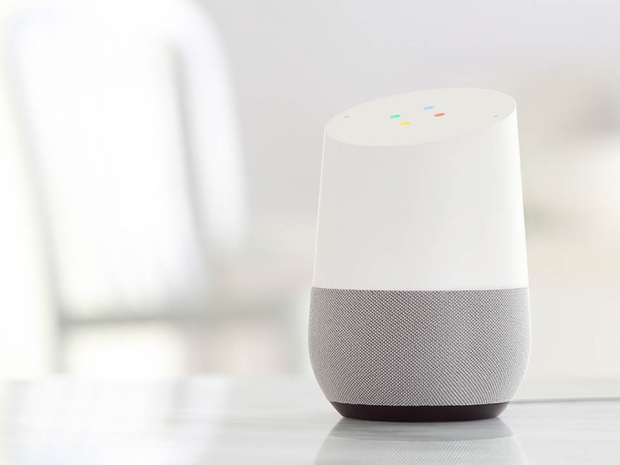Google Home began as a rumor in March 2016 when reports surfaced that the company was developing a wireless speaker to compete with Amazon's Echo. Following its announcement at the I/O developer conference in May and a US launch before the holidays, market reports have estimated that around 24.5 million Google Home and Amazon Echo connected speakers will ship in 2017, well above the 6.5 million units that shipped last year.
Before the device makes its official debut in UK markets on April 6th, the company wanted to ensure that it would be able to gather enough partners to make its platform a viable competitor in the broader smart home hub market currently dominated by Nest, Amazon, Wink, and Apple HomeKit.
On Wednesday this week the Google Home smart speaker will be able to control devices from twelve additional companies – August, Lifx, Wink, Rachio, TP-Link, First Alert, Vivint, Best Buy Insignia, Frigidaire, Anova, Geeni, and Logitech Harmony.
An expansion of the Weave platform for IoT devices
Since its launch last November, the device has only been capable of operating with four platforms – Nest, Philips Hue, Samsung SmartThings, and IFTTT. As such, it was well behind its closest competitor Amazon in terms of smart home compatibility, especially in the light of new connected lighting and thermostat products announced at CES by some of its partners.
The platform was also only capable of operating with lights, plugs, switches, thermostats and robotic hoovers. But today the device compatibility list has been expanded to include sprinklers, locks, air conditioners, vacuum-sealed cookers, and a professionally installed smart home system.
Google announced lastDecember that it would be focused on improving and expanding its Weave communications platform – the language its IoT devices use to speak to each other.
Some reports have noted that Google Assistant responds to more flexible language than Amazon’s Alexa, giving it a slight competitive edge when issuing voice commands. Amazon has had its Echo products on the market for nearly two years, while Google released Home just four months ago. The Mountain View software company now expects its platform to gain some speed thanks to the twelve companies and the addition of support for sprinklers, air conditioners and other household appliances.




